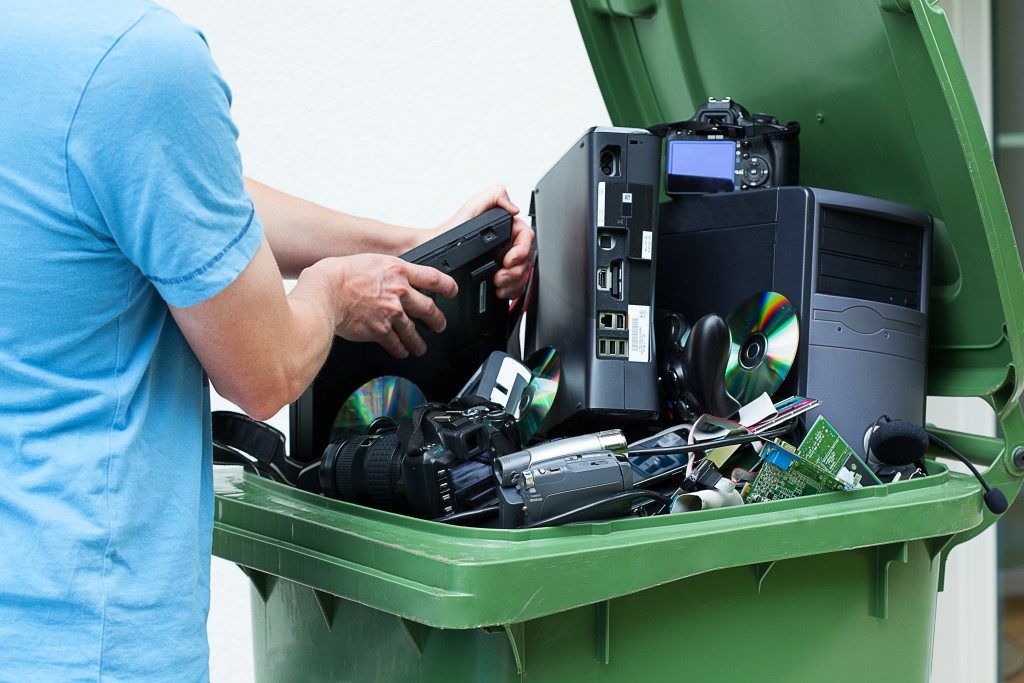 Is there a drawer in your home where you place old electronics, or do you throw old gadget away? If you are an average smartphone user, you’re likely to replace your device every six months. In the United States, hundreds of thousands of mobile phones, laptops, and desktop computers are thrown to the trash every day.
Is there a drawer in your home where you place old electronics, or do you throw old gadget away? If you are an average smartphone user, you’re likely to replace your device every six months. In the United States, hundreds of thousands of mobile phones, laptops, and desktop computers are thrown to the trash every day.
The fate of unwanted electronics
Every year, the number of cellphones and computers being decommissioned reach hundreds of millions. What becomes of them after you throw in the trash? Of all the electronics waste people discard, only about 13 percent undergoes recycling. As such, when a device reaches the end of its life (and for many, even when they are in their prime), it usually ends up in the landfill.
It is unfortunate that most e-waste is not disposed of properly in many parts of the world. A report in 2016 estimates the volume of discarded e-waste at almost 45 million tons.
The dangers of electronic waste
When handling cellphones and laptops, people are not in any imminent danger from their chemical components. However, it’s helpful to remember that there are hazardous chemicals in these devices –compounds that leech into the soil when the gadgets are piled up with other waste materials in a landfill. As time goes by, mercury, cadmium, lead, and beryllium that is present in such wastes will contaminate the soil, bodies of water, and even the air. Trace elements are not hazardous in small amounts, but they can be toxic when they reach a critical level. Toxic chemicals leached from landfills are particularly harmful to bodies of water.
Electronics recycling
 When people recognize the dangers associated with improper e-waste disposal, various states have legislation requiring proper disposal and recycling. You may or may not be aware of regulations governing electronics recycling in Boston, but you can start looking for a certified e-waste recycler in your area.
When people recognize the dangers associated with improper e-waste disposal, various states have legislation requiring proper disposal and recycling. You may or may not be aware of regulations governing electronics recycling in Boston, but you can start looking for a certified e-waste recycler in your area.
Place your old gadgets in a bag or box and get them ready for proper disposal. Many organizations around the world are dedicated to spreading the word about safe and responsible handling of electronics. They have gone a step further and offer disposal and recycling services. When we reuse the plastic and metal components of old gadgets, we save energy and natural resources. Would you like to be part of this worthwhile endeavor? There’s no reason not to.
Preparing old electronics for recycling
Eighteen months from now, would you be purchasing a new mobile phone? Before you do, look for something with multiple functions, and perhaps a gadget that you’d like to keep for a longer time. Some electronics makers are enforcing sustainable policies in the design and fabrication of their products. Look for these companies and patronize them. At the least, look for an Energy Star-certified product. If you need to buy a new gadget, look into donating the old ones instead of disposing of them. That is another welcome alternative.
When you’re not too busy, take stock of all the electronic appliances and gadgets you have at home. Try to gather together all the pieces of electronics you haven’t thrown away but won’t use again. Clean them, sort them, and prepare them for proper disposal, recycling, or donation. Do this, and the planet will thank you for it.
